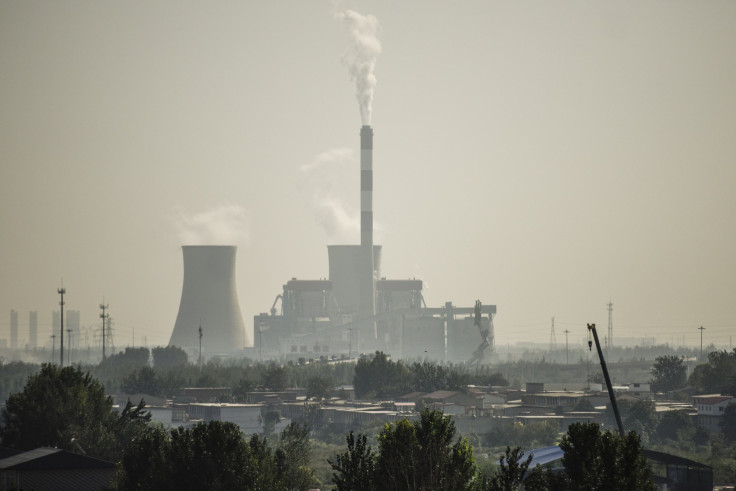China Emissions News: Beijing Hopes To Cap Emissions Before 2030 Deadline

China may work to decrease greenhouse gas emissions earlier than its 2030 deadline, according to a leading Chinese analyst. Qi Ye, director of the Brookings-Tsinghua Center for Public Policy in Beijing, told the Guardian Tuesday that Chinese policymakers are hoping the country will reach its emissions peak before the scheduled timeline it agreed to in a joint deal with the U.S. last November.
“China hopes to peak as early as possible because it understands it’s in the national interest and to the benefit of the people in terms of health considerations,” Qi said to the Guardian.
In the deal, China agreed to start using energy from zero-emission sources such as nuclear, wind and solar power. The country said it would bump up its use of those sources to around 20 percent by 2030, which would require an additional 800 to 1,000 gigawatts of generation capacity in those areas, according to a White House statement. The U.S. pledged to decrease its emissions to 26 to 28 percent below 2005 levels by 2025 in the same deal.
Pollution and smog in China have been health concerns for years. In preparation for the 2008 Olympics in Beijing, China struggled to clean up its air so that athletes could safely compete there. And a study reported by the South China Morning Post showed that 670,000 people died in 2012 because of smog in China.
China will launch a national cap-and-trade program in 2017 that will limit emissions. That announcement came from President Barack Obama’s administration last week, showing the determination of the two leaders to come together on climate change, even as they disagree on many other issues. China’s President Xi Jinping and Obama plan to highlight their countries’ efforts at a U.N. climate change conference in Paris in December to encourage other countries to make progress on curbing their emissions.
Ye said that China is showing "global leadership” on climate change with its new goals.
“A 2030 peak is very ambitious, it’s very challenging,” he said. “I think most people underestimate how challenging that is. Everyone wants China to have an earlier peak but no one wants it more than China itself.”
Ye added that China will see its demand for coal slow down as it makes progress toward cutting its emissions. This will likely mean change for some of China’s many trade partners as it requires different imports in coming years.
“In the past we thought it was a cost to address climate change. Then we realized not addressing it will cost us more,” Ye said. “By developing clean energy technologies, we bring more economic opportunities. Every country should look at this with fresh eyes and seize the opportunity rather than just talk about the cost of it.”
© Copyright IBTimes 2024. All rights reserved.





















